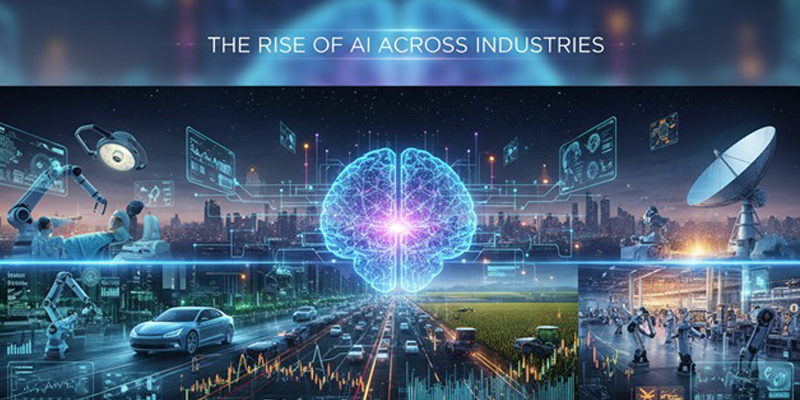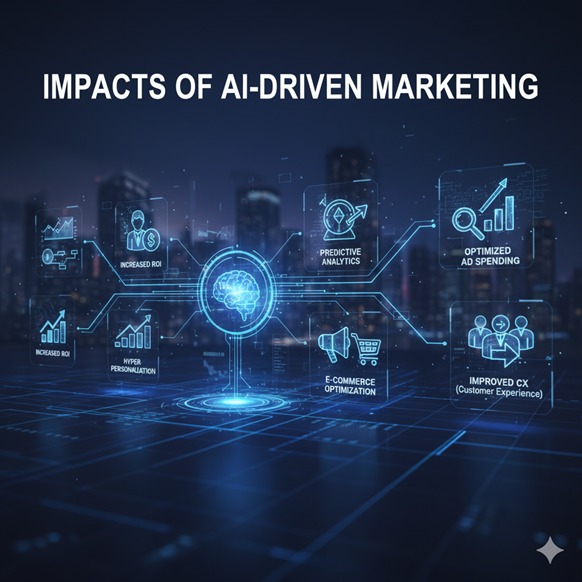

Marketing automation refers to the use of software as well as other technologies to automate routine marketing tasks such as sending emails, social networking, lead nurturing, as well as customer segmentation. It is geared towards making the processes more efficient, making the processes more personal, as well as gaining improved results through reduced manual labor. Marketing automation, essentially, enables companies to reach the correct audience through the correct message in the correct time.
Classic marketing automation relies heavily on defined rules, such as the sending of a reminder email three days after someone registers. It can be effective some of the time, but it usually lacks sufficient flexibility, human touch, or responsiveness to the ways users behave. This is where Artificial Intelligence (AI) enters the scene, AI in marketing is all the buzz in recent days and transforming the way marketing automation is implemented as well as developed. Let’s delve into the insights of AI in Marketing Automation here in this blog!
AI is gaining prominence even across sectors healthcare, finance, manufacturing, logistics, and even schools are embracing AI technologies to improve productivity, contain costs, and provide customized experiences. Marketing, too, cannot be left behind. There are a lot of Examples of AI in Marketing Automation to support. AI is no longer science fiction; it already comes embedded in the very tools marketers use daily. From smart content suggestions to AI-based automated customer support to predictive analytics, AI is transforming the very existence of marketing.
The core advantage of AI in marketing is that it can learn extensive data sets, recognize patterns, and make judicious decisions without significant human intervention. As marketers, they perceive this as enhanced precision in targeting, increased customer engagement, and enhanced payback on investments.
AI in marketing automation refers to the use of machine learning, natural language processing (NLP), predictive analytics, and other AI technologies to enhance and automate marketing activities. It moves beyond simple task automation and into intelligent decision-making.
For example, rather than setting manual rules for sending emails, AI can analyze user behavior and automatically determine the best time to send a message, what content to include, and who is most likely to engage.
Below are ten examples of AI in Marketing Automation that illustrate how AI is reshaping marketing automation across industries.

Big and popular online companies like Amazon and Netflix use AI in marketing to look at how users act and recommend products or shows. These systems think about things like what you have looked at, what you bought before, and how similar users behave to give you personalized ideas right away.
This gets users more involved, lifts conversion, and significantly improves the order value.
Using tools such as Mailchimp and ActiveCampaign lets AI in marketing by incorporating AI to power email marketing campaigns. AI can automatically determine the optimal time to send emails, make predictions on what subject lines will lead to better open rates, and even create content based on user behavior.
For example, AI can divide your email list into micro-audiences and personalize messaging accordingly, decreasing unsubscribes and driving engagement. Any Advertising agency use these days.
Salesforce and HubSpot apply AI to review past lead information and determine which leads are most likely to convert. This enables the marketing and sales departments to focus on high-value leads rather than spending time on cold leads.
Implementing AI in marketing automation takes into account data points like email opens, website traffic, social media activity, and demographics in order to score leads. Many Examples of AI in Marketing Automation available which showcases the benefits.
AI driven chatbots are now a standard in online customer support. Applications such as Drift, Intercom, and Zendesk apply natural language processing to interpret customers' questions and answer with immediate responses, 24/7.
These robots can provide FAQs, lead users through sales funnels, make appointments, or even upsell products all without human assistance. This creates quicker response times and enhanced customer satisfaction.
AI in marketing automation assists companies in making price adjustments real-time based on demand, supply, competitor prices, and customer activity. It is commonly applied in travel and retail sectors.
For instance, airlines and hotel reservation websites employ dynamic pricing algorithms to show various prices to various users based on their locality, booking history, and browsing history. AI based pricing enhances competitiveness and optimizes revenue.
A prominent example of AI in marketing automation is that it can track customer data at touchpoints (web visits, emails, social media engagement, purchases) to generate rich maps of the customer journey. This informs marketers where users fall off, which content is most effective, and which actions result in conversions.
With software such as Adobe Experience Platform or Google Analytics 4, companies can leverage the use of AI to personalize marketing for every step of the customer journey for greater effectiveness.
Marketers implement AI in marketing by using tools like Jasper and Copy.ai to create blog posts, ad copy, and product descriptions from brief prompts. AI tools apply natural language generation to output human-like content that can be optimized for SEO or engagement.
In addition, tools such as MarketMuse and Clearscope utilize AI to scan successful pieces of content and recommend keywords, structure, and readability enhancements for optimization.
Brands apply AI to track social media discussions and reviews online to determine public opinion. Brandwatch and Sprout Social employ AI-powered sentiment analysis to decide if mentions are positive, negative, or neutral.
This enables companies to react anticipatorily to PR problems, comprehend customer tastes, and personalize marketing messages according to the attitude of the public.
AI driven image recognition platforms such as Google Vision and Amazon Rekognition enable marketers to automatically caption and categorize images, facilitating easier management of digital assets and conducting visual-driven campaigns.
Home decor and fashion brands use AI which enables customers to find products by picture rather than name, greatly enhancing the user experience and conversion ratio. Which is again a significant example of AI in marketing automation.
AI is a fundamental fuel of programmatic advertising which any performance marketing agency uses, with the buying of advertisements being optimized and automated in real time. The Trade Desk and Google Ads leverage AI to classify user action and display targeted ads on the web.
It entails bid optimization, picking placements, and creative asset optimization to reach the most appropriate audience at the least possible cost.
The merging of AI in marketing automation is not simply a tech innovation, it's a strategic imperative.
AI makes marketers capable of:
Those organizations that adopt AI in their marketing automation processes tend to experience enhanced customer engagement, increased conversion rates, and a more powerful brand loyalty.

AI is not going to replace marketers, but it's helping them do their job better and faster. As AI keeps improving everyday, its usage in marketing automation will increase. From automatic personalized product suggestions to predictive analytics and smart chatbots, foreseeing the opportunities are endless.
The success holds in knowing what your business objectives are and selecting the AI tools which suits, and adding them to your marketing processes. Using AI, marketers are able to shift from speculation to accuracy and from broad outreach to actual engagement.
Connect with Bud, an expert marketing agency in Chennai, to leverage your business by AI-powered strategies!